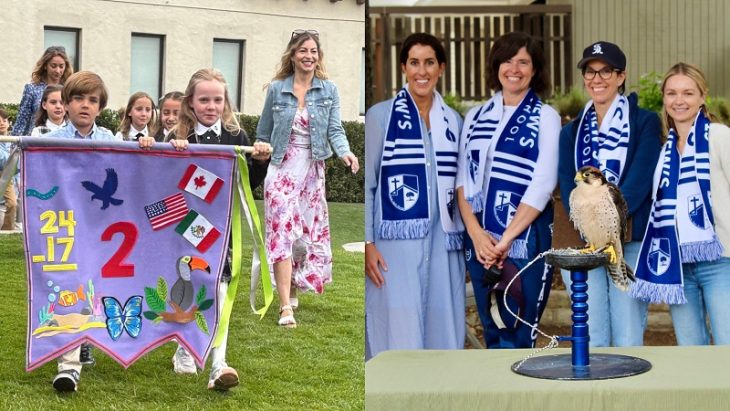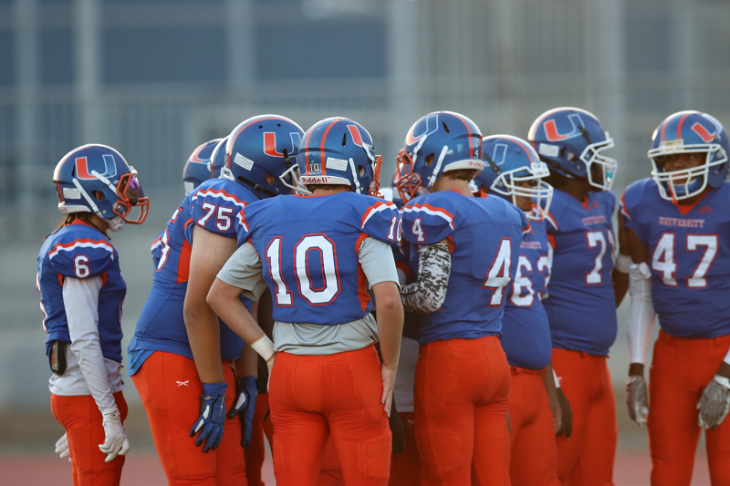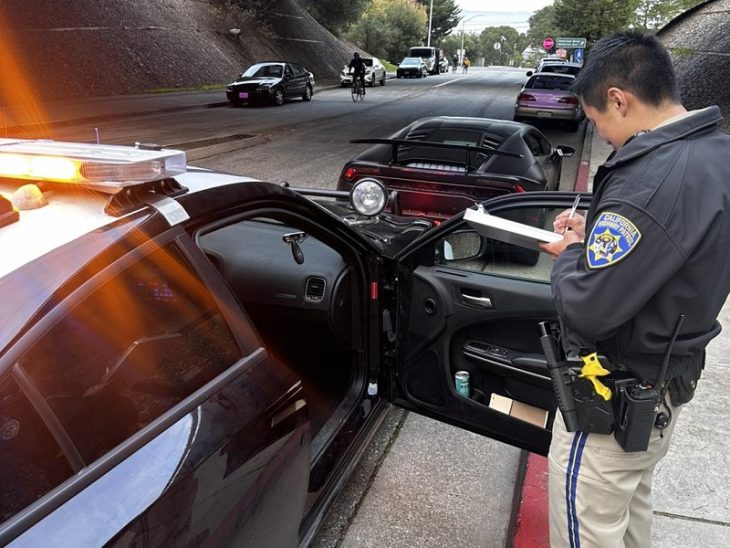
In a ceremony overshadowed by the debate over a lack of diversity in Hollywood, “Spotlight,” the story of The Boston Globe’s investigation of sexual abuse by priests, won the Oscar for best picture, while Leonardo DiCaprio and Brie Larson were named best actor and actress.
In a ceremony that ran more than three and a half hours, the longest since 2002, British actor Mark Rylance and Swedish actress Alicia Vikander won their first Oscars for supporting roles in “Bridge of Spies” and “The Danish Girl,” respectively. “The Revenant” director Alejandro Gonzalez Inarritu, meanwhile, won his second straight directing Oscar.
It was also a ceremony that saw the high-octane thriller “Mad Max: Fury Road” take home a leading six Oscars in mostly technical categories.
But it was “Spotlight” that captured the evening, winning the first and last prizes awarded during the 88th Academy Awards at the Dolby Theatre. The film started the ceremony by winning best original screenplay for Josh Singer and director Tom McCarthy. It then capped the evening with the best picture prize.
“We would not be here today without the heroic efforts of our reporters,” producer Blye Pagon Faust said. “Not only did they affect global change, but they absolutely show us the necessity for investigative journalism.”
McCarthy, while accepting the screenplay award, also hailed the journalists who inspired the movie.
“We made this film for all the journalists who have and continue to hold the powerful accountable,” McCarthy said. “And for the survivors whose courage and will to overcome is really an inspiration. We have to make sure this never happens again.”
The win for DiCaprio, 41, for “The Revenant” was his first Oscar in six nominations, including four for best actor. He was previously nominated for “The Aviator,” “Blood Diamond” and “The Wolf of Wall Street.”
He called the grueling tale of a frontiersman fighting to survive in an unforgiving wilderness “a product of the tireless efforts of an unbelievable cast and crew,” and a “transcendent cinematic experience.” He also took the opportunity to address one of his leading political causes — climate change.
“Making ‘The Revenant’ was about man’s relationship with the natural world, a world that we collectively felt in 2015 as the hottest year in recorded history,” he said. “Our production needed to move to the southern tip of this planet just to find snow. Climate change is real. It is happening right now. It is the most urgent threat facing our entire species and we need to work collectively together and stop procrastinating.
“… Let us not take this planet for granted,” he said. “I do not take tonight for granted.”
Larson, 26, won the best actress Oscar on her first nomination for her portrayal of a mother who escapes captivity with her young son in “Room.” She hailed director Lenny Abrahamson and her young co-star, Jacob Tremblay, who she called her “partner through this in every way possible.”
“Thank you to everyone who participated in ‘Room,’ thank you to all of you who saw it,” she said. “Thank you to the fans, thank you to the movie goers. Thank you for going to the theater and seeing our films, I appreciate it. Thank you.”
Inarritu, who won three Oscars last year for directing, writing and producing best-picture winner “Birdman,” praised his “talented and crazy cast and colleagues and crew members” on “The Revenant.” But he also made a call for more acceptance of diversity in Hollywood and globally — echoing a theme of the marathon ceremony.
“(I’m) very lucky to be here tonight, okay? But unfortunately, many others haven’t had the same luck. There’s a line in the film that says … ‘They don’t listen to you, they just see the color of your skin.’ So what a great opportunity for our generation to really liberate ourselves from all prejudice and this tribal thinking and make sure for once and forever that the color of our skin becomes as irrelevant as the length of our hair,” he said.
Rylance, 56, was named best supporting actor for his role as a Soviet spy in Steven Spielberg’s “Bridge of Spies,” while Vikander won the Oscar for supporting actress for “The Danish Girl.” Their nominations were both the first of their careers.
“I’ve always just adored stories — hearing them, seeing them, being in them — so for me to have the chance to work with I think one of the greatest storytellers of our time, Steven Spielberg, it’s just been such an honor,” Rylance said. “Unlike some of the leaders we’re being presented with these days, he leads with such love that he’s surrounded by masters in every craft on his film, every craft, not the least of which is Tom Hanks.”
Rylance’s win was a bit of an upset over Golden Globe and Critics Choice Award recipient Sylvester Stallone, who reprised his role as Rocky Balboa in “Creed.”
Vikander, 27, won for her role as the wife of a cross-dressing husband in “The Danish Girl.” Vikander, who also earned acclaim in the past year for her work as a self-aware robot in the sci-fi drama “Ex Machina,” thanked her “Danish Girl” director, Tom Hooper, “for your support and belief in me.” She also praised co-star Eddie Redmayne, telling him, “Thank you for being the best acting partner. I couldn’t have done it without you. You raised my game.”
“Mad Max: Fury Road,” meanwhile, collected six Oscars. Jenny Beavan won her second career Oscar in 10 nominations for costume design for her work on the high-octane thriller. She previously won for 1985’s “A Room with a View.”
“Mad Max” also won Oscars for production design, shared by production designer Colin Gibson and set decorator Lisa Thompson; for makeup and hairstyling by Lesley Vanderwalt, Elka Wardega and Damian Martin; and for film editing by Margaret Sixel.
The film won two Oscars for sound: sound editing for Mark Mangini and David White, and sound mixing for Chris Jenkins, Gregg Rudloff and Ben Osmo.
“Mad Max: Fury Road” had 10 nominations heading into the ceremony, second only to “The Revenant,” which had 12.
“The Revenant” also won the Oscar for cinematography, with Emmanuel Lubezki winning for the third year in a row. He won last year for “Birdman” and the previous year for “Gravity.”
“Ex Machina” won for visual effects, with the award shared by Andrew Whitehurst, Paul Norris, Mark Ardington and Sara Bennett.
The prize for adapted screenplay, went to Charles Randolph and Adam McKay for “The Big Short.”
“Inside Out” was named best animated feature film. For producer Pete Docter, the win was his second, having previously won for “Up.”
The Oscar for best animated short film went to the Chilean film “Bear Story,” produced by Gabriel Osorio and Pato Escala.
“Amy,” about the late singer Amy Winehouse, won for best documentary feature, while “A Girl in the River: The Price of Forgiveness,” about a Pakistani woman sentenced to death for falling in love, won for best documentary short.
“Stutterer” won the award for live action short film, while “Son of Saul,” a Hungarian film about a prisoner at Auschwitz, was named best foreign language film.
Ennio Morricone, 87, won his first Oscar for his original score for Quentin Tarantino’s “The Hateful Eight.” Famed for his scores on 1960s “spaghetti Westerns” starring Clint Eastwood, such as “A Fistful of Dollars,” “For a Few Dollars More” and “The Good, The Bad and The Ugly,” Morricone received an honorary Oscar in 2007.
For original song, the Oscar went to Jimmy Napes and Sam Smith for “Writing’s on the Wall,” from the James Bond film “Spectre.” While accepting the award, Smith said he had read an article saying no openly gay man had ever won an Oscar.
“I want to dedicate this to the LGBT community all around the world,” Smith said. “I stand here tonight as a proud gay man and I hope we can all stand together as equals one day.”

























